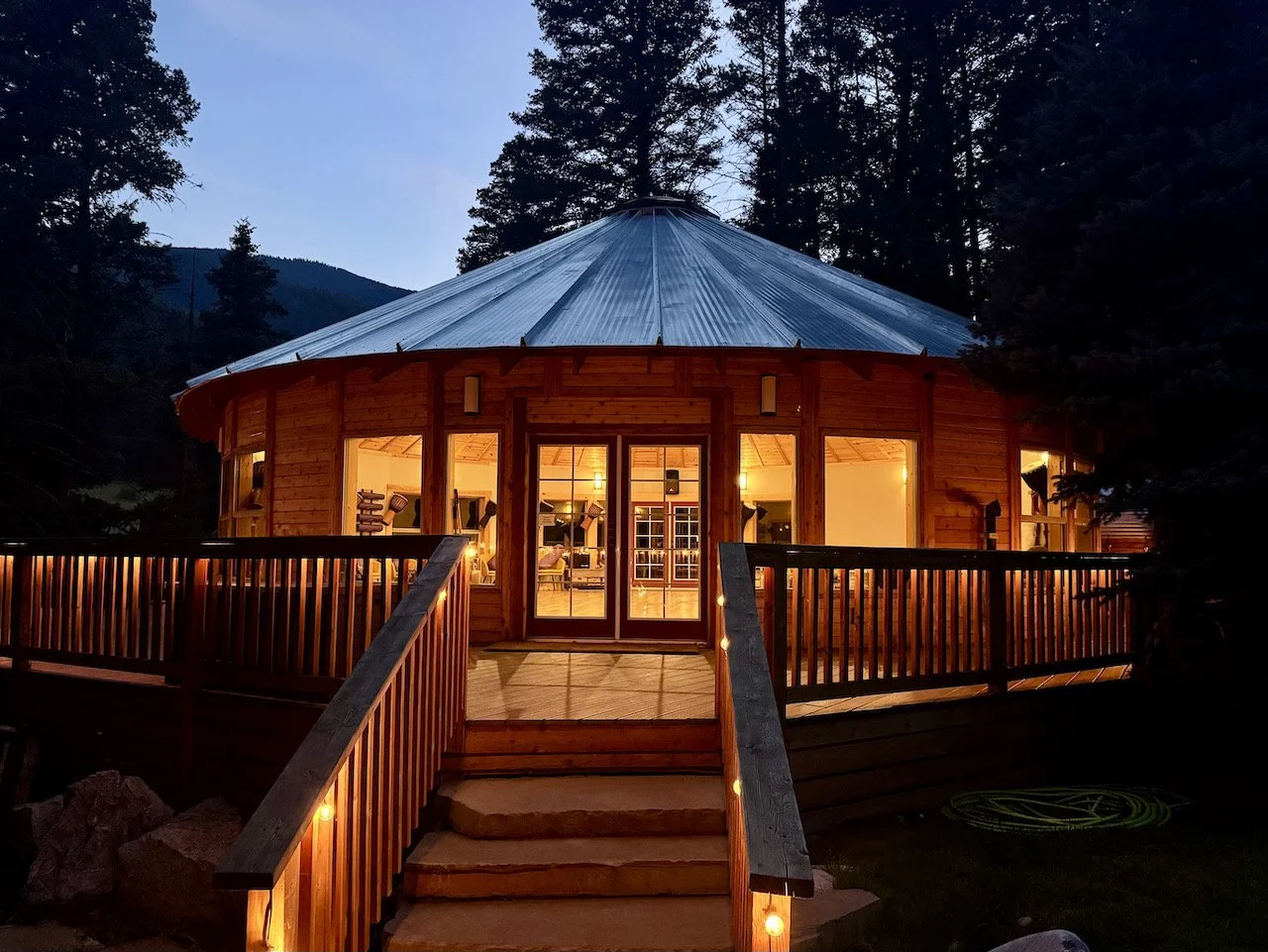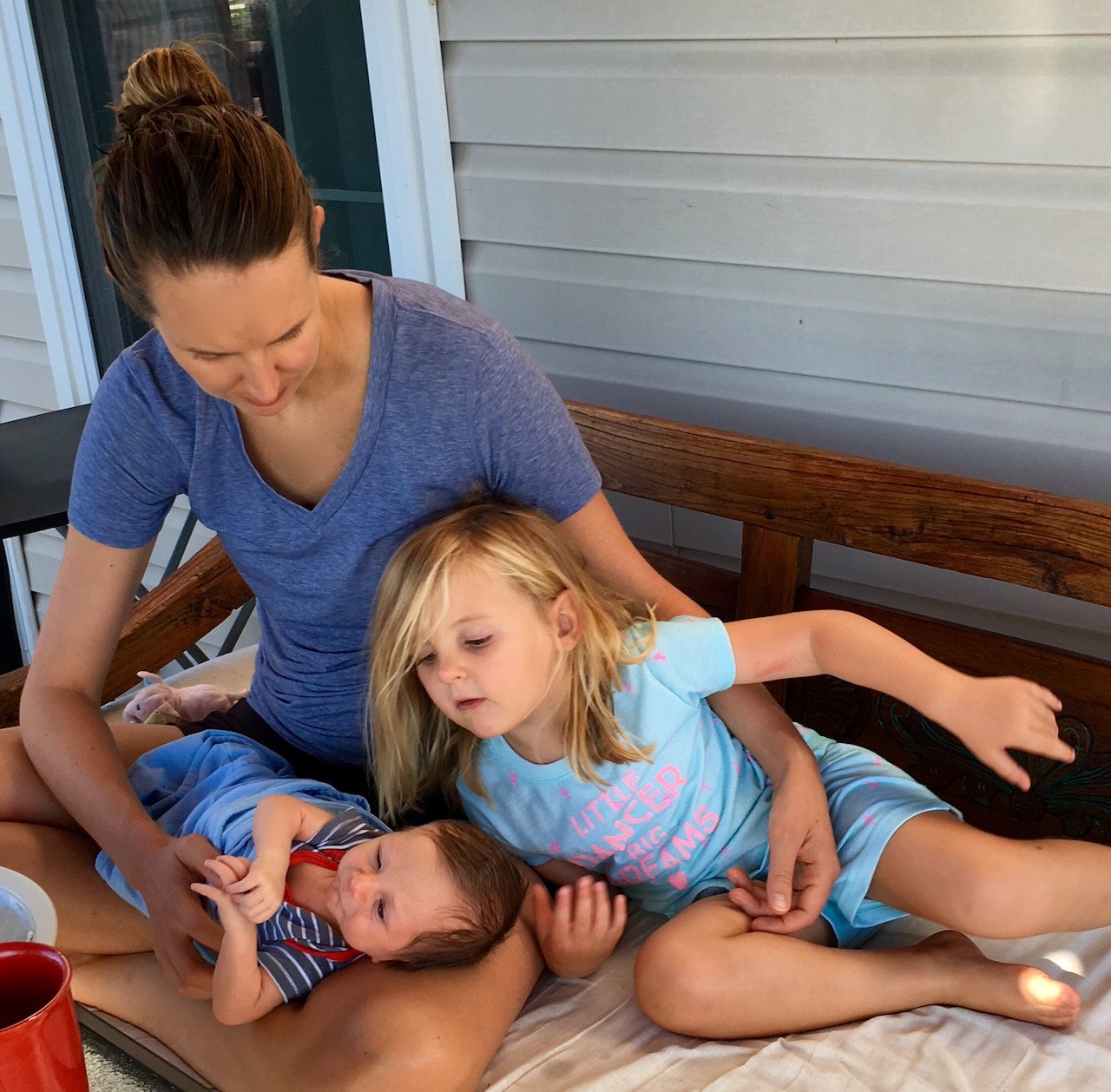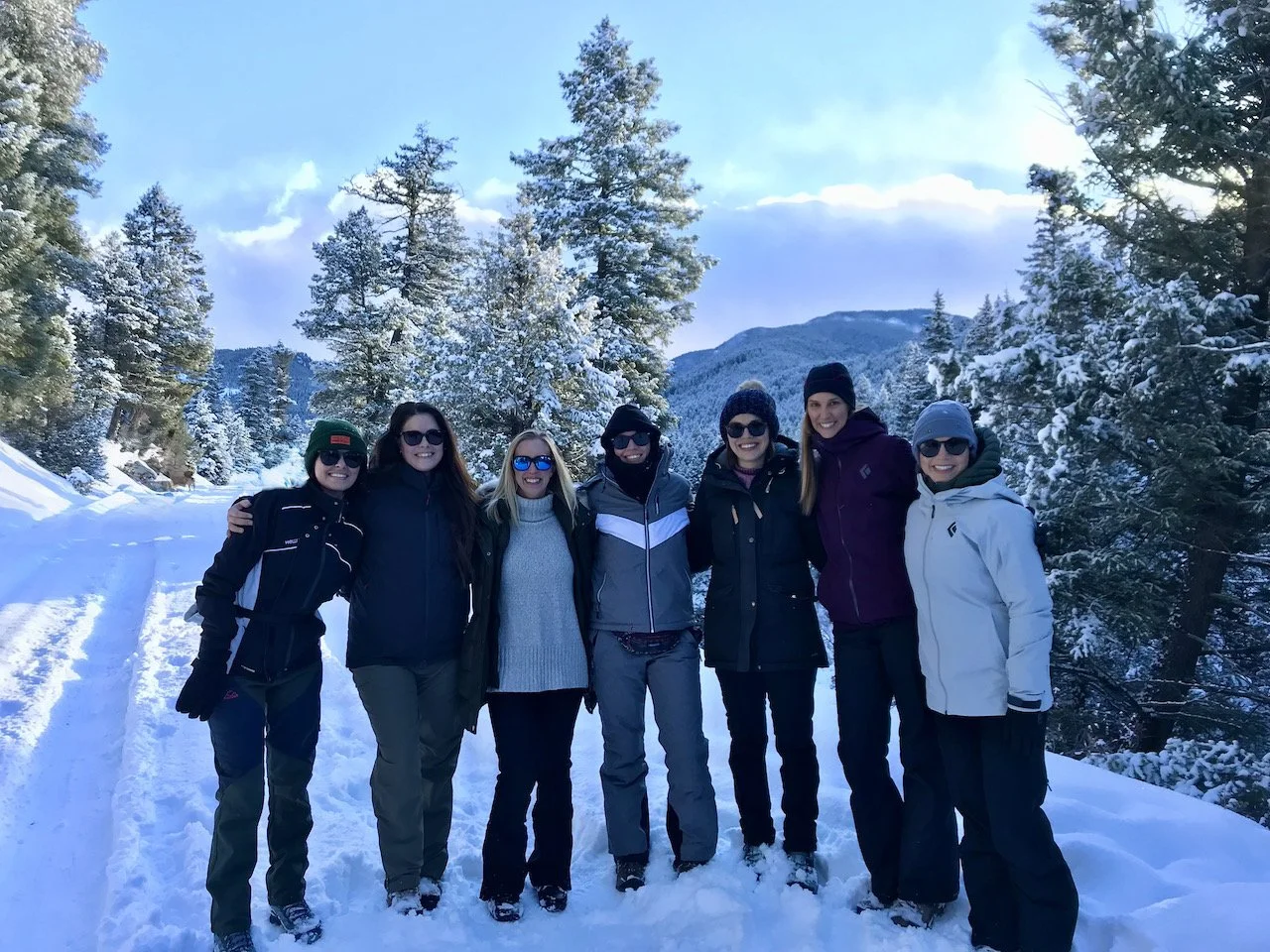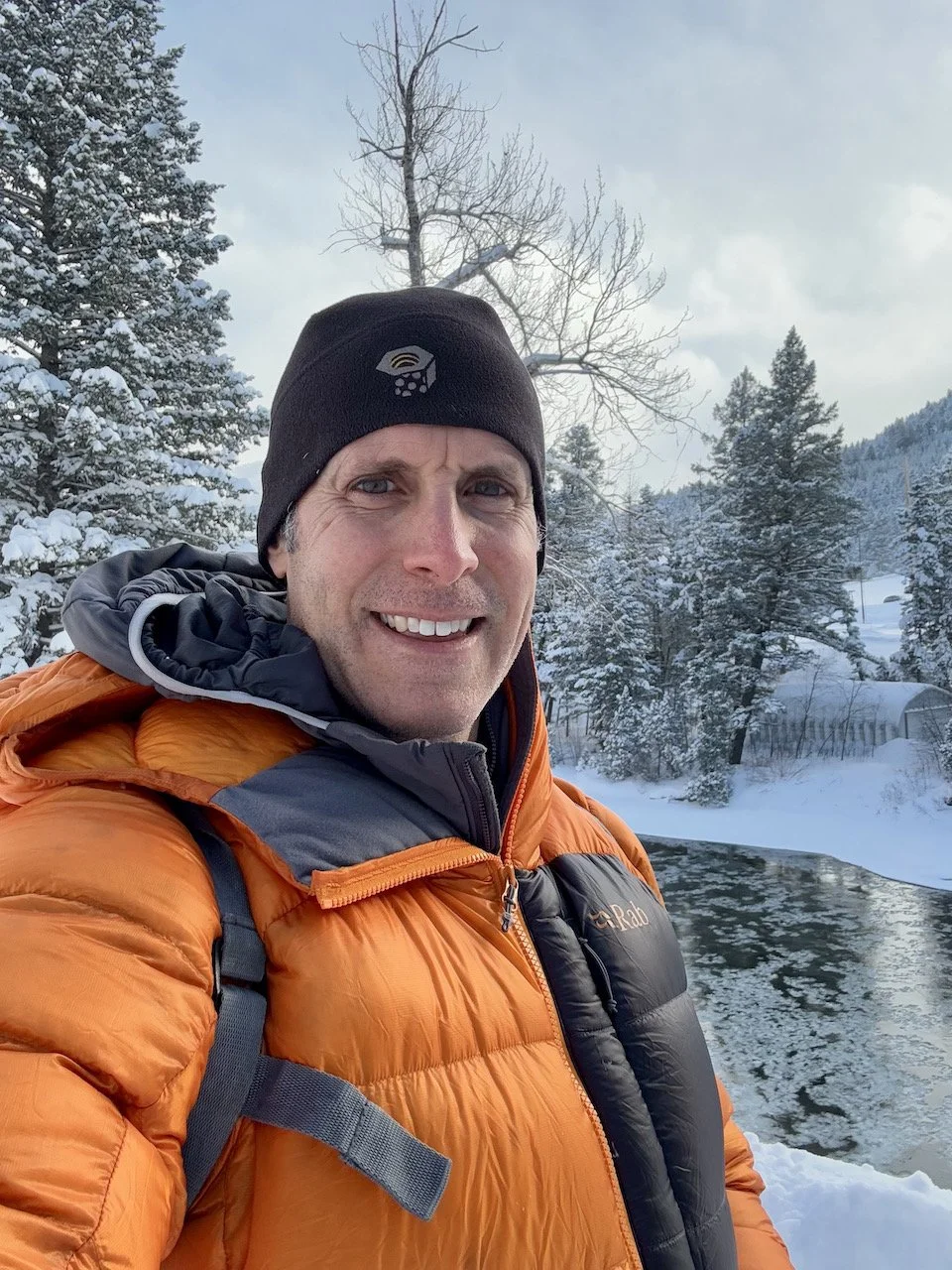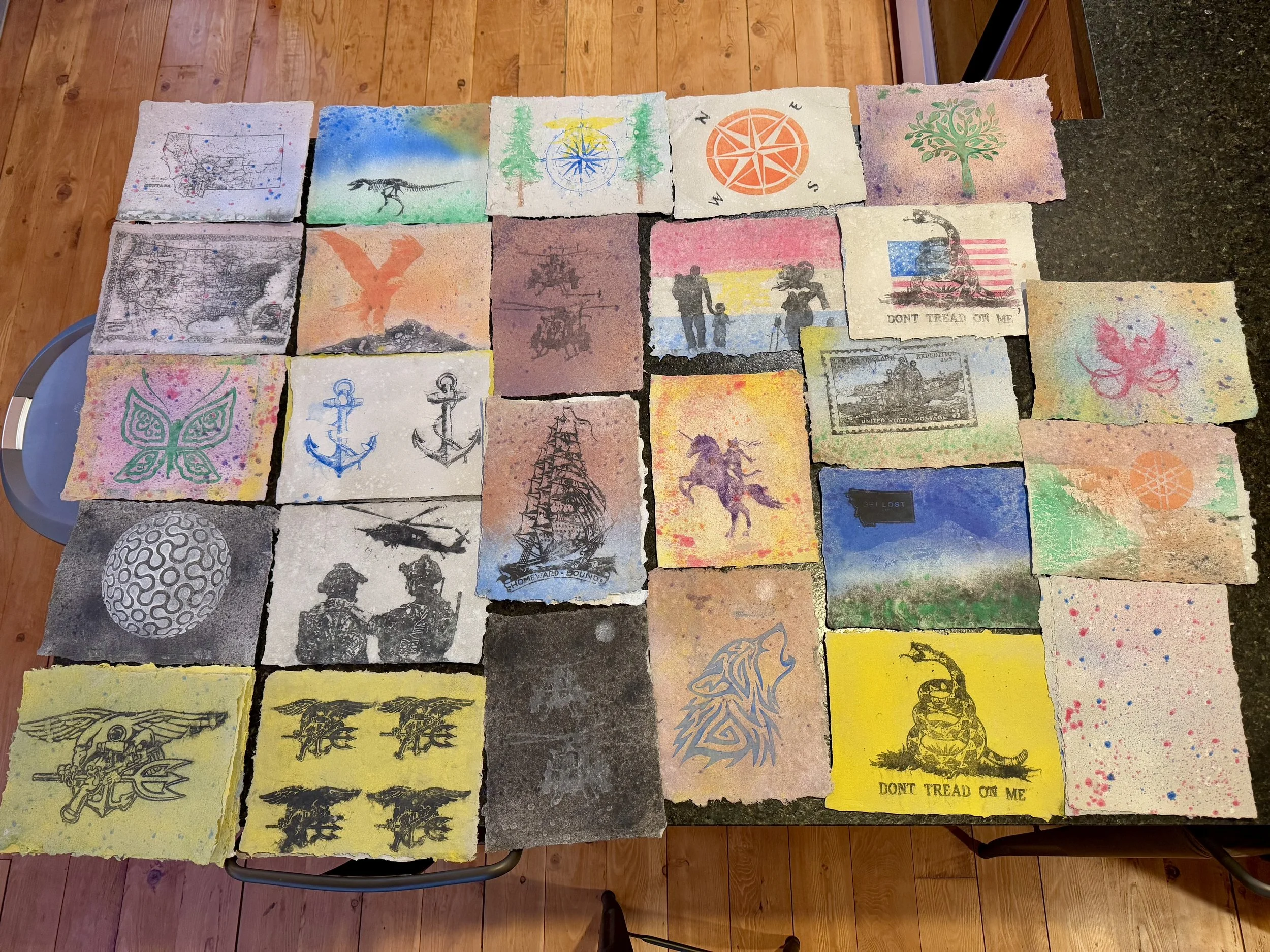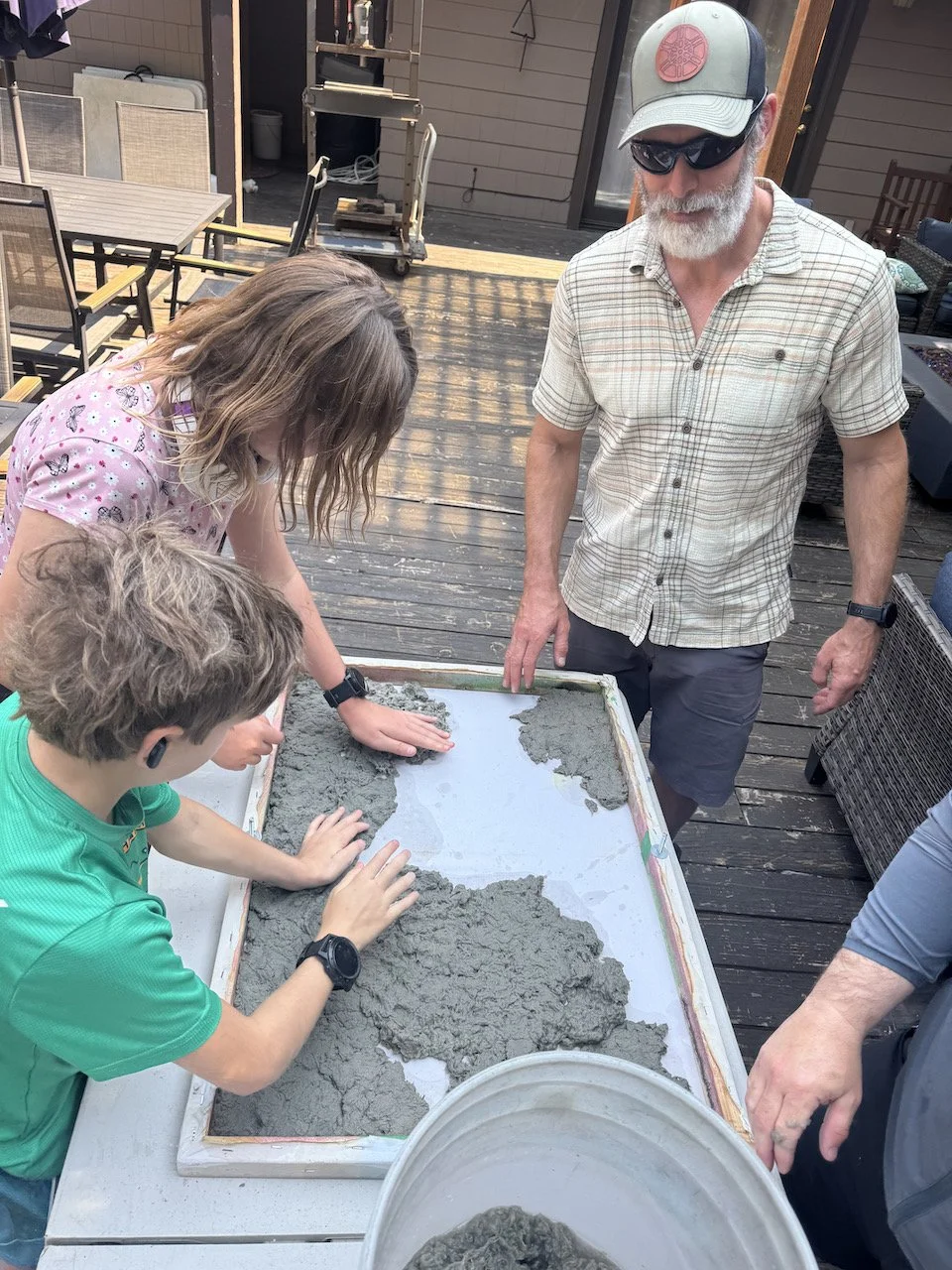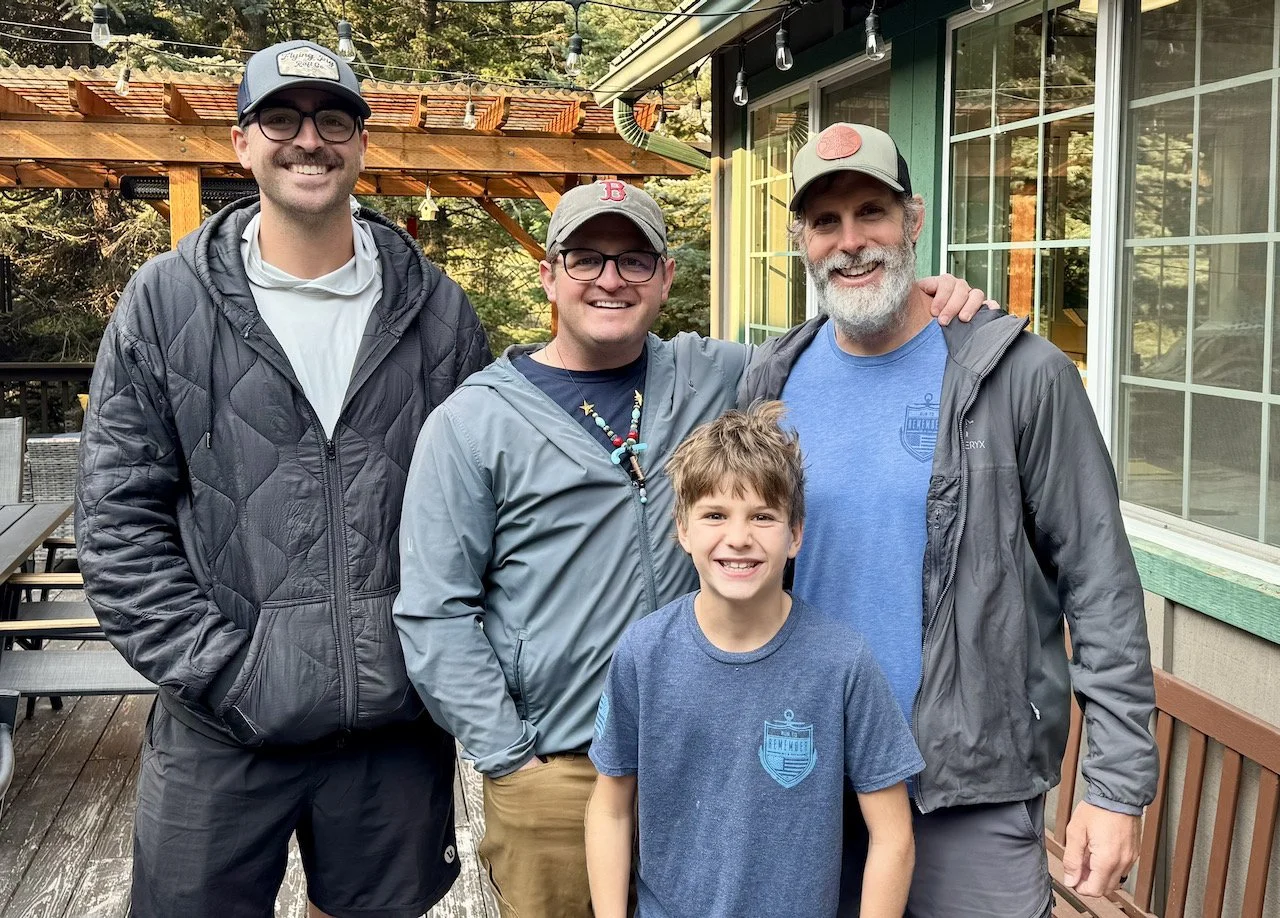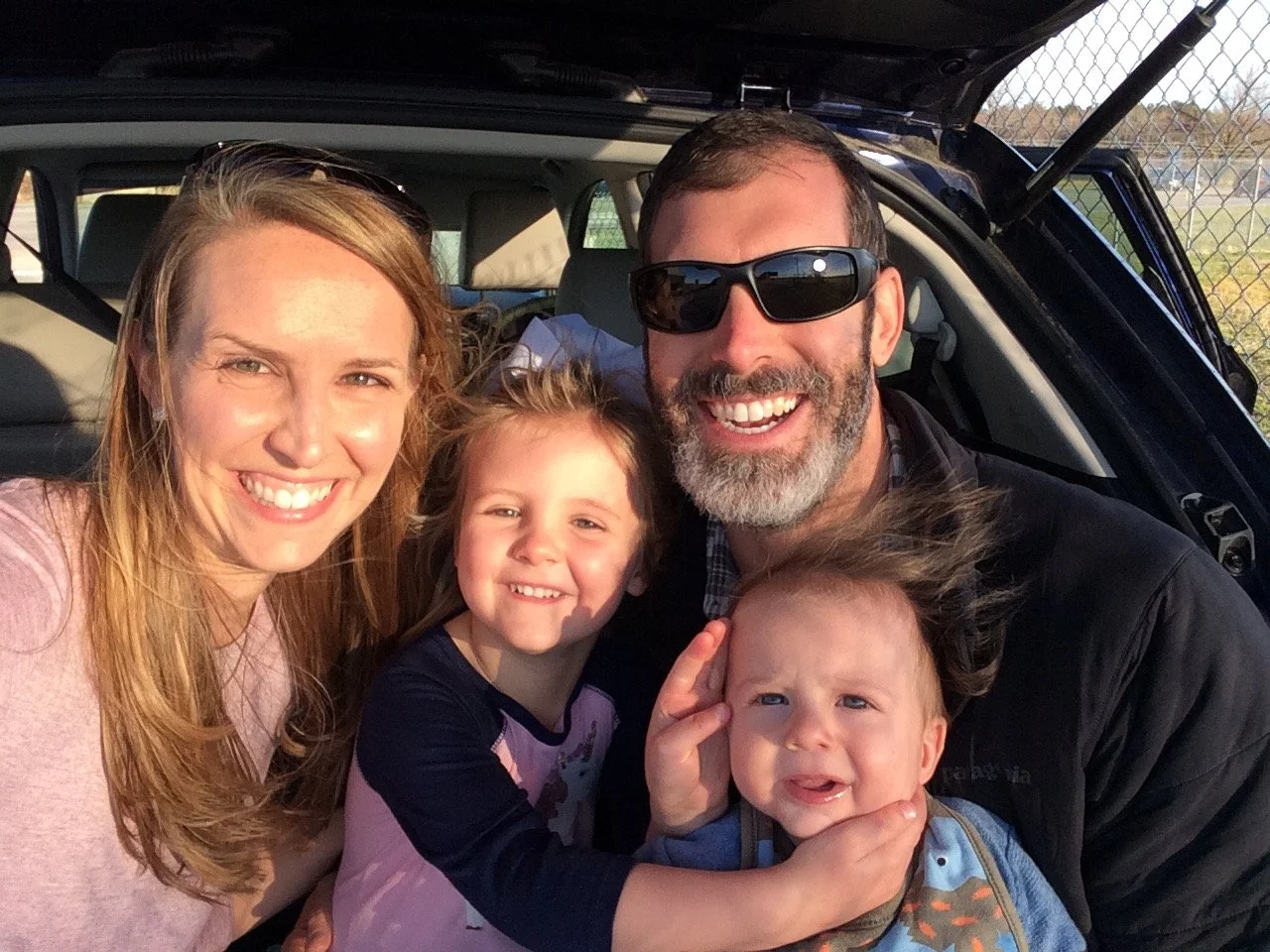The Station Foundation: A Crucial Stop on our Journey Home
A nonprofit organization in Montana helps members of U.S. Special Operations Forces and their families rest, heal, and find their way home.
August 29 - September 3, 2025
The Station Foundation, Bozeman, Montana
“Come to me, all you who are weary and burdened, and I will give you rest. Take my yoke upon you and learn from me, for I am gentle and humble in heart, and you will find rest for your souls. For my yoke is easy and my burden is light.” —Jesus, Matthew 11:28-30
The Station Foundation is a nonprofit organization based in Bozeman, Montana that provides healing and transition assistance for members of the U.S. Special Operations community and their families, including Gold Star spouses and children. At least, that’s the quick summary.
For those of us who have landed in their care, the Station is an absolute godsend, providing help and healing that is as intentional as it is personal. In the sea of military/veteran-focused nonprofits, their mission and impact are in a class of their own.
Here’s our story of how the Station Foundation became, not just a stop on our road trip, but a crucial stop on our journey out of military life.
The Backstory
To fully understand the Station’s impact on our lives, we have to travel back to the period from 2015 to 2019. During these years, Nick was in his most intensive combat leadership roles at an especially intense command while we were concurrently raising our young family. To shorten his commute, we moved to a house across town and, shortly after, had our second baby. I hadn’t yet caught my breath when Nick deployed.
For four months, I solo-parented our two little ones, ages three and three months. I still don’t quite know how to put into words the weight of caring for tiny humans completely on your own while their father/your partner is in a war zone.
Thankfully, I had a system of support in place. Family came to visit. Friends, preschool, Bible study, and church filled our weeks. Neighbors entertained our extroverted little girl. My world revolved around night feedings, diaper changes, potty training accidents, and a baby whose weight tanked after his dad left.
Not wanting to face winter and the holidays alone, I took the kids to Texas for two months to be surrounded by grandparents. They helped so much. But during those months when Nick was overseas, no one else shouldered the full responsibility of caring for our kids. That load was fully mine to carry.
My prayer for that deployment was simple: that we would survive it. That each of us would make it to the finish line and be together in March. That prayer was answered—for us.
A teamate’s family homecoming from that deployment was not to be, and the family’s lives were forever changed. To this day, it still weighs on me that after each separation, our family got to see the finish line while others did not.
In the months after Nick returned, I began to sense the fallout of my survival plan. I was there—breathing, cleaning, paying bills, taking care of our kids. But I looked around my life and couldn’t see myself anywhere. After years of round-the-clock caregiving and unchecked worry, I felt like a ghost of myself. I found myself asking, where is Peyton? Who is Peyton?
Worst of all, Nick was just beginning orders with this more intense command. More deployments were coming—some we didn’t even know about yet.
Through countless training trips, job changes, unexpected deployments, and stomach bugs, I soldiered on as mom and put-together Team Wife. I powered through the heartbreak of hearing about operators lost or injured, of marriages broken apart.
A look around our community revealed other Team families juggling the same hard things I was—some harder and with more kids under their care. Surely, I told myself, I had it easier than they did. Surely I should be able to handle this.
The Breaking Point
Needing something to change, I started doing small things that made me feel like me. I joined a gym with childcare and relished the quiet hour-long yoga classes where I could breathe and hear the thoughts in my head without interruption. I attended church, Bible study, and community group regularly, only skipping when the kids or I were sick. I started writing every day, giving myself the first 20 minutes of nap time just to get words down—a discipline that unintentionally planted the seeds of the novel Beneath the Seams.
It was all a step in the right direction. But year after year, the intense cycle of train-deploy-train-travel and an endless stream of solo bedtime routines and middle-of-the-night wake-ups wore me down. I needed my partner’s help, but through no fault of his own, he was always leaving me. My self-care efforts started to feel like unsticky band-aids, barely covering the wound and not at all healing it.
Two Christmases later when Nick was on another continent for the duration of the holiday season, I hauled a Douglas fir from the top of our SUV into our front room by myself. As five-year-old Sadie unloaded all the breakable ornaments onto the floor minutes before we needed to pick up two-year-old Nate from preschool, I tried setting the unwieldy tree in the base and screwing in the screws.
Buried in branches as needles poked my face, I tried to get the wobbly tree steady and upright. But I couldn’t hold up the tree, see if it was straight, and screw in the screws by myself.
This is the moment I completely fell apart. That Christmas tree. Everything wasn’t supposed to feel this hard.
That week, with Nick’s help from overseas, I found my way to a phone call with a psychologist at the command. I told her what I was experiencing. I was doing all the things I could think of to feel better. Yoga classes. An emergency massage. Hiring babysitters. None of it helped me feel less overwhelmed.
“We see this a lot from senior spouses,” she said. “At first, you get good at getting through deployment. You build your system of coping mechanisms. But over time, those coping mechanisms stop working.”
To my horror, the command psychologist confirmed that for seasoned spouses in our community, what I was experiencing was normal. It struck me as wildly unfair that most things get easier the more you do them. But deployments only get harder.
And this was our eighth deployment. The deck felt stacked against me.
A Time to Heal
Somewhere along the way, another spouse mentioned an eight-day retreat in Bozeman, Montana for Special Ops spouses. My first thought was wanting to cry.
There was no way I could escape my life for eight days. Our kids were too little. Nick and I were already apart so much. Leaving felt impossible. But my body and soul craved that sanctuary of rest. Maybe one day, I prayed.
Two cross-country moves and one pandemic later, my prayer was answered. I was accepted into a Station Foundation cohort of spouses. We met weekly on Zoom before the trip, and in December 2022, my mother-in-law and her sister came to watch our now-older kids, alongside my parents (who were now local—it really does take a village). With my manager’s blessing, I took off a week from my new job and flew to Bozeman.
During the retreat, we spent the week being cared for by the Station’s amazing staff. Delicious, healthy meals were prepared for us. We had yoga sessions multiples times a day and spent hours painting and crafting in the art studio. We took long, aimless walks in the snow.
We slept in. We sipped hot tea by the fireplace, swapping stories with spouses who had walked similar paths to similar breaking points, though each of our struggles were unique. For an entire week I didn’t wash a dish.
That week, the fresh snow, towering mountains, and incredible group of spouses and staff all came together to spark a turning point in my soul. Heavy weights that had burdened my heart for years became dislodged. Bricks I didn’t know I was carrying were shaken loose, raining out of me one teardrop at a time.
With the Station’s help, I left the bricks of resentment in the snow in Bozeman. Returning home, I felt lighter, happier, freer, seen, forgiven—and even grateful—for the challenges I had overcome during those dark years.
I could go on about the impact of that week, but instead, here’s part of a thank you note I wrote to Shannon Stacy, one of The Station’s co-founders:
“The Station Foundation taught me that I am not a victim of my circumstances. That there is always something to be grateful for. You reminded me of the power of breath to create peace amid chaos, and that sometimes the most important thing you can do is nothing… and to simply be.
You were right that the mountains were strong enough to absorb our weaknesses, the river gracious enough to wash away the hurt from our past, and the snow generous enough to offer a fresh start. Our family’s military journey is still underway. As we move forward with fresh hope, I am forever grateful to The Station for being a pivotal stop on my heart’s journey home.”
Breaking Rag
For the next two years, as the intensity of Nick’s job ramped up (again), I forwarded him every Station Foundation email about a retreat for transitioning service members. And I mean every email (not sorry!). One quiet evening on our New Years trip in January, Nick filled out the application and was accepted. In February, amid heaps of snow, he flew to Bozeman.
After 24 hours there, he called me from the landline in his cabin. “Thank you, thank you, thank you, thank you for insisting I come here,” he said. In his voice was a levity I hadn’t heard in a while.
He spent the week unpacking his experiences with other operators who were preparing for or newly adjusting to civilian life. He hiked and cross-country skied and, much to my surprise, spent lots of time in the art studio.
One of the Station’s signature art projects for service members and spouses is making paper—but not just any paper. While packing for the trip, spouses and service members are asked to bring pieces of uniform worn in combat. The uniforms are cut into strips, mixed into a pulp, and used to make paper. They call the evolution Breaking Rag.
During his week there, Nick went all in making and painting the most sheets of paper of anyone in the Station’s history. (We joked that Nick would unknowingly find a way to turn the retreat into a competition that could be won :).
He came home refreshed and renewed, ready to tackle his last months at work and the looming transition ahead.
Return to the Station
In May, an email arrived listing volunteer opportunities at The Station. How perfect, I thought, to be able to serve and give back to this organization that had served our family so well.
I checked our itinerary. Bozeman fit neatly between Yellowstone and Glacier national parks. I immediately noticed that the proposed dates coincided exactly with Nick’s last days of active duty service.
I filled out the application offering to help however we could. We received an immediate yes. Come. In preparation, Nick sent a stack of uniforms worn in combat so they could prepare the pulp for more paper.
After our incredible week at Yellowstone, we drove north to the Station. Returning to this sacred place with Sadie and Nate during the final days of Nick’s service felt pre-ordained. Like, of course this is where he should be to cross the line from operator to citizen.
During that quiet weekend at The Station Foundation, some pivotal things happened for our family. We found out (and began mentally processing) Nick’s VA disability rating. We swapped our active-duty ID cards for retired ones and enrolled in retired healthcare. We saw the final Navy paycheck post to our account.
As volunteers, we spent time giving back a small portion of what this place has given to us. We cleaned windows and floors, mowed the grass, and restocked cabins for the next group of service members. It was especially meaningful knowing one of the people coming out that same week was a dear friend on his way out of the teams.
As a family, we scrubbed the windows of the yurt, where the bulk of the retreat programming takes place. When Nick and the kids moved on to other projects, I stayed behind to sweep and mop.
When the broom swept over the place on the floor where I sat the week of the retreat, my eyes filled with tears recalling the pain that was dislodged and the relief of forgiveness that began in that exact spot. All, mind you, on the exact day Nick’s service in the Navy had officially ended.
I was reminded that even though this isn’t a specifically Christian organization, it is absolutely the Lord’s work being done here. The work of easing yokes and lightening burdens for those weary and in need of rest.
When we were finished, the yurt sparkled clean. Light poured through the windows. The wood floors glistened. We left the space empty of dirt and dust, but filled with prayers for all who would seek healing within these walls.
A Crucial Stop
After Nick and I spent separate weeks receiving so much from this place, it felt like yet another gift to get to serve here. We especially loved sharing this special space with Sadie and Nate. They spent the long weekend making paper—including a large American flag—rock climbing, hiking, and enjoying the beautiful grounds beside the river.
At first, I titled this story Transformations at The Station Foundation. The word seemed to fit Nick’s transition from active duty to civilian life and his uniforms’ transformation into paper—something seemingly completely new.
But after thinking it through, ‘transformation’ didn’t feel quite right.
Because just as the fibers that endured combat still lie inside the paper, the weight of war remains buried inside those impacted by it.
The memories may settle deep and dormant, but they’re still part of our story. To what extent and to what purpose, we don’t yet know. But we trust the Lord to reveal this in His time.
We are forever grateful He led us to the Station Foundation—a place to rest, heal, and move forward with purpose.
How to Get Involved
If our story has sparked any interest in getting involved with this special organization, below are some helpful links.
Join the email list: The Station Foundation sends out occasional updates about their programs and shares how people can help, volunteer, mentor, donate, and get involved. Here’s a recent Program Spotlight they sent out. The link to join their email list is at the bottom of the page.
Attend retreats and events: For the SOF operators and spouses, I hope you will join the Station Foundation’s email list so you’re looped in to retreat opportunities and events through your local outpost. The Station hosts regular, free, meaningful events for operators and families to process, heal, and rest—right in your own duty station. (And they are awesome!).
Follow on Instagram: @thestationfndn
Donate: Absolutely all of this is possible thanks to donations and the dedicated staff in Bozeman and at outposts. (Thanks to those who donated as Nick’s retirement gift!)
For those in the SOF community who have experienced the impacts of war, the Station Foundation is a crucial stop on the journey home. We are so grateful for the founders, Kevin and Shannon Stacy, who saw the dark void of support alongside the escalating need and didn’t look away.
Instead, they came back to get us—and helped us make it home.
Roberts on the Road
Homecoming day after deployment #6
For those just finding us, hello! Inspired by the Year of Jubilee in Leviticus 25, our family is on a yearlong RV road trip in 2025-2026 to celebrate my husband’s retirement after 20 years in Naval Special Warfare, as well as our 24 years together during the ups and downs of it all.
With our 12-year-old daughter and 9-year-old son in tow, this trip to explore America’s national parks and beautiful places is intended to help our family reflect and reset as civilian life begins.
Sign up below to receive updates about the trip, along with stories, photos, and reflections from 24 years of military service. We look forward to keeping in touch on this epic adventure.
To join the Road Trip email list, please fill out this short form. We promise no spam and an AI-free zone. Any typos and mistakes are my own :)
For background info on who we are and where we’re traveling, we’d love for you to read the intro post. The full list of road trip blog posts can be found here. Thanks for stopping by!
